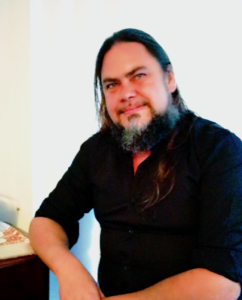Attending counselling for the first time is challenging – no doubt about that. It’s scary, has the potential for us to feel embarrassed, and it’s normal to have a deep-seated fear of what unchained beast may be lurking beneath the thin veil of our personal façade, even as we know it. We have a fear of being judged and of Pandora’s box – what might come out and can we put it back in again!
So here you are about to pick up the phone, you have wrestled with yourself incessantly looking for excuses not to call. ‘I don’t really need it..’, ‘it’s not that bad’, ‘I’ll be ok..’ , ‘The problem is with them, not me!”. Ultimately you have come to this point, terrified but determined to feel better, even if to prove them wrong. Here are just a few things to remember so that you not only get the most out of what you pay for, but what you learn, discern, establish, redesign, forfeit, reshape, plant, stir-up, grow in or otherwise explore to be truth.
Take the First Step
Many clients that attend counselling say that making that first phone call is one of the hardest steps along with finding the courage to turn up. However, once they have flung themselves over the threshold and into sessions they report feeling relieved, invigorated and ultimately pleased they made the decision to get the ball rolling.
‘Sometimes we simply need to have a little faith and step out of the boat..’
Be Honest
Honesty seems like a simple thing, but if we really drill down it can be harder than we think. Not to imply that we set out to deliberately deceive but part of the counselling experience is learning to unveil those parts of ourselves that we have hidden under a number of guises, sometimes for many, many years. We tell ourselves that cause and affect were different from what they actually were, we seek to either allay blame or to take blame unto ourselves where none is warranted or we simply deny everything in the hopes it will go away. Healing in this counsellor’s opinion takes place first in transparency, honesty first with ourselves and then with others. But why do we do this, why not be
Healing in this counsellor’s opinion takes place first in transparency, honesty first with ourselves and then with others. But why do we do this, why not be real about things as they are? In truth there is transparency and in transparency truth, fear becomes our biggest roadblock to healing. We ask inevitably ‘Who am I?’ and ‘What if I don’t like whom I’ve become?’ ‘What happened to the strong person I used to be?’. That strong person has just become stronger simply in finding the strength to ask the question. Life happens and often happens in ways that are neither pretty nor comfortable but that’s ok because nothing grows in a vacuum. Likewise nothing picks itself up without at first falling down. Facing up to these things is overwhelming and often all too real as we question what others will think and what we will think of ourselves, instead I would challenge you to embrace the window that effective therapy can provide. A chance to look in and look through to what is inside and what we face next. After all, it is just that, simply a glimpse into those things that are within, it is totally up to you if you choose to open it.
‘In truth there is transparency and in transparency truth..’
Perseverance and Patience
Good therapy is often painful, no one likes to think it, certainly no one likes to advertise it but simple truths are important. The harsh reality is when we start to strip away what has made us comfortable, even though it may no longer serve us that cleaving sometimes brings pain. Likened if you like to commencing a new exercise regime we know it is doing us good but sometimes we have to do some hard yards to get to the final result. Perseverance and patience in the process is important in any personal transformation to make sure we get to the end of the race. We easily get disheartened if we dig deeper than we thought and un- mask unknown demons we spent years carefully locking in a little box, that was then chained, wrapped in barbed wire, placed in another box, locked in a cabinet, thrown in our own shark-infested lake with a sign on the bank saying beware of the bear! But nonetheless this well-meaning therapist has encouraged us to go diving with an oxy torch and a large crucifix to retrieve it.
‘Perseverance, patience and trusting the process will get us across the line eventually until bears become teddies, sharks become minnows and demons become saints that have made us stronger, more resilient, more loving and embracing of life and those around us.’
Do Your Homework
Good therapy finds ways to empower us and that often means practice, making an effort to change our thinking patterns and knee-jerk reactions. This might be anything from more exercise (groan..) through to entering challenging environments, picking up old hobbies or even writing a letter. Sounds a little too much like school I know, no-one likes having to work on their own time but the simple fact of the matter is those that progress are the one’s that do their homework.
The good news is this particular assignment yields lasting benefits that take us beyond who and where we are into something new, an inspired freedom that we had forgotten was even possible – until now.
Self Care, Self Care, Self Care
I said it three times just in case you missed it. Good self-nurturing practices not only maximise your chances of success but set you up to prosper in the future, heal exponentially and embrace a life of emotional and Spiritual abundance as it is meant to be. Self care can be almost anything that is beneficial and is a uniquely personal part of knowing what you need to heal and grow. People people need socialisation and empathic and introverted people often need alone time. Ultimately its about finding something that feeds you emotionally from exercise to art and music to mountain climbing. One last thing is to revisit that Spiritual outlet simply because wholeness doesn’t take place without it.
About the Author – Andrew Jewell, Wedgetail Ministries
 Andrew is a Writer, Counsellor and Christian Motivational Speaker and is the founder of Wedgetail Ministries. Andrew writes articles and reflections to uplift and encourage people Spiritually and Emotionally in achieving Wedgetail’s Mission. – ‘ To lift the fallen, to heal the broken, to bring light into the very darkest reaches of humanity.. To be the very definition of Grace, that is our collective purpose.’ Andrew Jewell.
Andrew is a Writer, Counsellor and Christian Motivational Speaker and is the founder of Wedgetail Ministries. Andrew writes articles and reflections to uplift and encourage people Spiritually and Emotionally in achieving Wedgetail’s Mission. – ‘ To lift the fallen, to heal the broken, to bring light into the very darkest reaches of humanity.. To be the very definition of Grace, that is our collective purpose.’ Andrew Jewell.
You can find out more about Andrew on his website, wedgetailministries.com, Facebook, Twitter, Medium, and Google+. Andrew can be contacted through email on .



Andrew,
Thanks for this article on taking that first step. I think you hit on something important in addressing our hesitancy to take that first step and talk to someone. As a counsellor, I see many clients coming after months of considering what they should do about their problems. I hope your article will encourage some to find the help they need and be honest about their challenges.
It is important to know what your goal is so that when you reach that goal you can stop the counseling. Here are the goals I have had on separate counseling events: I need to stop trying to change him and accept him. I need a reality check- are the people at work crazy or am I? I need some tools to deal with stress so that body doesn’t suffer. I want to stop using food as the way I meet my emotional needs. After seeing a therapist and diligently doing the painful work, I was able to quit after 6 weeks-14 weeks knowing that if I needed a “booster” I could return as needed. Each time I regained perspective, confidence, hope, joy, and my relationships improved.
Great job Karen. Many thanks again. Blessings, Andrew – wedgetail